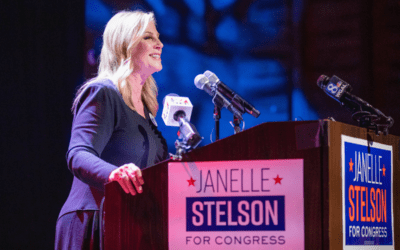
When news about President Trump's taxes broke, many Americans wondered how he avoided paying anything for years. The answer? Tax breaks and loopholes benefit the rich (Shutterstock).
Most taxpayers will never receive the kind of tax breaks given to the wealthy, which expands inequality and hurts the middle class.
Earlier this week, Americans learned that President Trump paid only $750 in taxes during his first two years in office. The news set off a firestorm of media coverage, and also raised an important question: How could a self-professed billionaire be paying such a small amount of his income back into the system?
America’s tax code is supposed to be progressive, meaning people who make the most money should pay more in taxes. Federal income tax rates are set this way: Americans who make over $518,400 have a tax rate of 37%, but that percentage drops as income goes down, all the way to just 12% for someone making $9,875 a year. Anyone making less than that is not expected to pay income tax, though they would still contribute taxes to Social Security and Medicare through payroll taxes.
But that is just one small sliver of the US tax code. And as the New York Times’ expose on President Donald Trump’s tax filings shows, the wealthiest Americans have found ways to pay a lower percentage of their money in taxes than the country’s lowest-wage earners for decades. The Congressional Budget Office found that of all the money the United States has lost due to tax exclusions, more than half of it is due to tax avoidance from the richest 20% of the country.
RELATED: Yes, the Stock Market Is Doing Mostly Well. No, the American Economy Is Not.
As the Center for American Progress (CAP), a liberal think tank, explains, America’s wealthiest families have been able to do that because of how the tax code handles “wealth.” This includes property, investments, and companies from which people derive huge sums of money (but aren’t considered regular income, like a paycheck). Statistics have shown that just over half of Americans overall have some kind of stock investments. Among those making less than $40,000 per year, only 22% own stock, which could—ostensibly—be subject to some version of the tax breaks that wealthy Americans enjoy.
“These changes have worsened a structural defect in the US tax code—specifically, its failure to tax massive accumulations of wealth,” CAP’s Alexandra Thornton and Galen Hendricks wrote in a 2019 paper. “The result is that America’s tax code no longer adheres to the core principle of ability to pay—the idea that taxes should be based on a person’s capacity to pay taxes. Instead, today’s tax code turns that principle on its head by letting the wealthiest of the wealthy pay virtually nothing on their gains.”
Their analysis found that in 2016, more than half of the money brought in by people who made more than $10 million was taxed at special lower rates reserved for money made from investments. At the other end of the spectrum, only 2% of the money brought it by people making $100,000 or less—who represent the vast majority of American workers—was taxed at those special rates. That means that the majority of the United States was likely paying higher effective tax rates than millionaires.
RELATED: Wealth and Wage Gaps Are Expanding Between Black and White Americans Under Trump
In addition to paying lower rates on gains from investments like stocks or properties, wealthy Americans can also use losses from those endeavors to decrease their tax bills.
The New York Times explains that this is exactly what Trump did with his businesses.
“The collective and persistent losses he reported from them largely absolved him from paying federal income taxes on the $600 million from The Apprentice, branding deals, and investments,” the Times story says. “That equation is a key element of the alchemy of Mr. Trump’s finances: using the proceeds of his celebrity to purchase and prop up risky businesses, then wielding their losses to avoid taxes.”
In other words, Trump claims his business losses on the same tax return as his personal income. And because his businesses lose so much money on paper, it means he ends up keeping whatever he is paying himself—tax free.
Tax filings do not make it easy to evaluate the legitimacy of those business losses. In one example cited by the Times, Trump’s New Jersey golf club increased its “general and administrative” expenses by five-fold from 2016 to 2017, with no explanation why. It’s possible that a business could have hired a much larger staff to make that happen, for example, but it could also be a fraudulent tactic to make it look like the business operated at a loss for tax purposes. As the Times reporting points out, it’s impossible to tell from the tax filings themselves.
RELATED: Middle-Class Americans Should Be Earning More, According to Biden. He Says His Tax Plan Will Help.
Trump was able to take those losses and use a tax code workaround to apply them to future years. For example, he reported $1 billion in losses in the early 1990s, a figure that let him claim a tax deduction for the next 18 years.
The CAP paper concludes that the first step in fixing this problem is by “eliminating, reducing, or offsetting the wide array of tax advantages” used by the wealthiest Americans. That includes taxing things like property, investments, and companies that get taxed differently than a normal paycheck.
Democratic presidential nominee Joe Biden has said that he will close these loopholes, which he brought up during the first presidential debate in Cleveland, Ohio, earlier this week. His proposals include taxing earnings from investments over $1 million like regular income and increasing the tax rate on Americans making about $510,000 per year or more (which represents a small minority of Americans).

For Rep. Susan Wild, supporting PA families includes reproductive rights and much more
Rep. Susan Wild wants to be very clear with Pennsylvanians: Donald Trump is committed to taking away women’s reproductive freedom, but he is not...

School districts working with anti-LGBTQ groups can cost your kids’ schools millions
Parents across South Central Pennsylvania are worried about the potential financial impacts working with anti-LGBTQ groups may have on their school...

VIDEO: Trump distances himself from his anti-abortion views
Donald Trump appeared on WGAL on Tuesday and continued to distance himself from his anti-abortion views claiming that reproductive rights are now a...

VIDEO: Community pushback gets school board to rescind decision on denying gay actor’s visit
Cumberland Valley School Board offered a public apology and voted to reinstate Maulik Pancholy as a guest speaker a week after the board voted to...

VIDEO: Project 2025 brings nuclear armageddon back into vogue
Project 2025 is a titanic document, with plans ranging from cutting half of all government employees to targeting reproductive rights on a scale...




